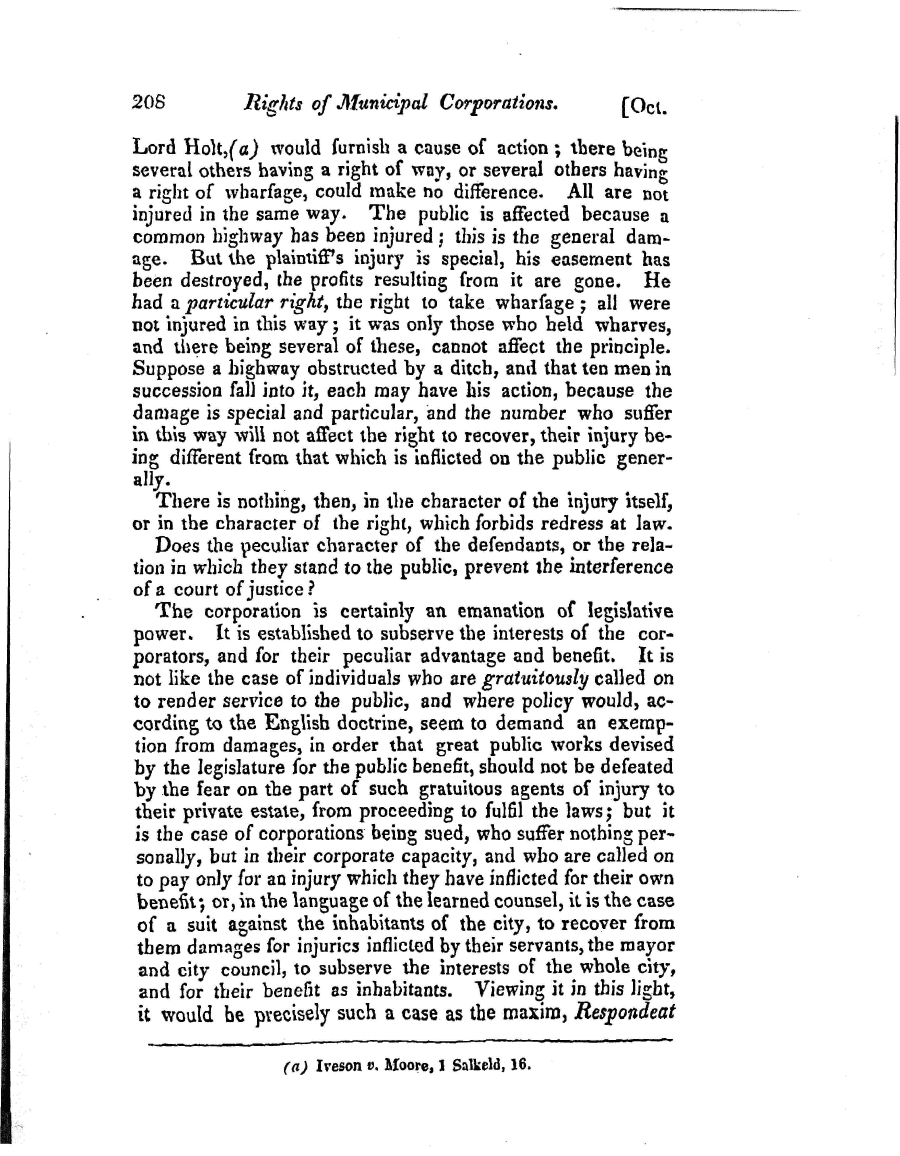|
208 Rights of Municipal Corporations. [Oct.
Lord Hok^faj xvould furnish a cause of action ; there being
several others having a right of way, or several others having
a right of wharfage, could make no difference. All are not
injured in the same way. The public is affected because a
common highway has been injured : this is the general darn-
age. Butlhe plaintiff's injury is special, his easement has
been destroyed, the profits resulting from it are gone. He
had a particular right, the right to take wharfage ; all were
not injured in this way ; it was only those who held wharves,
and there being several of these, cannot affect the principle.
Suppose a highway obstructed by a ditch, and that ten men in
succession fall into it, each may have his action, because the
damage is special and particular, and the number who suffer
in this way vrill not affect the right to recover, their injury be-
ing different from that which is inflicted on the public gener-
ally.
There is nothing, then, in the character of the injury itself,
or in the character of the right, which forbids redress at law.
Does the peculiar character of the defendants, or the rela-
tion in which they stand to the public, prevent the interference
of a court of justice?
The corporation is certainly an emanation of legislative
power* It is established to subserve the interests of the cor-
porators, and for their peculiar advantage and benefit. It is
not like the case of individuals who are gratuitously called on
to render service to the public, and where policy would, ac-
cording to the English doctrine, seem to demand an exemp-
tion from damages, in order that great public works devised
by the legislature for the public benefit, should not be defeated
by the fear on the part of such gratuitous agents of injury to
their private estate, from proceeding to fulfil the laws; but it
is the case of corporations being sued, who suffer nothing per-
sonally, but in their corporate capacity, and who are called on
to pay only for an injury which they have inflicted for their own
benefit*, or, in \be language of the learned counsel, it is the case
of a suit against the inhabitants of the city, to recover from
them damages for injuries inflicted by their servants, the mayor
and city council, to subserve the interests of the whole city,
and for their benefit as inhabitants. Viewing it in this light,
it would be precisely such a case as the maxiraj Respondeat
(a) Iveson v< Moore, 1 Salkeld, 16.
|

